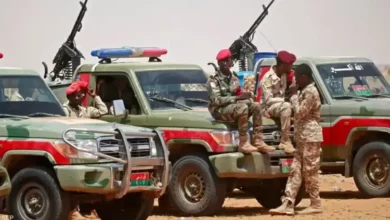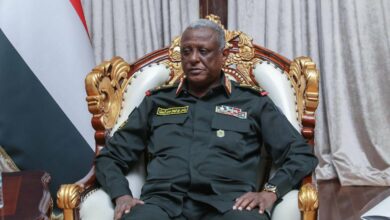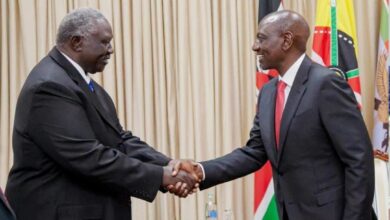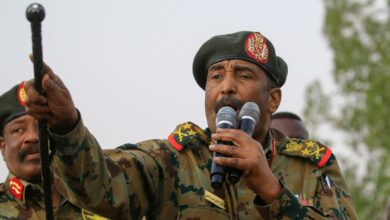Perthes calls on all Sudanese parties to show more commitment and political will
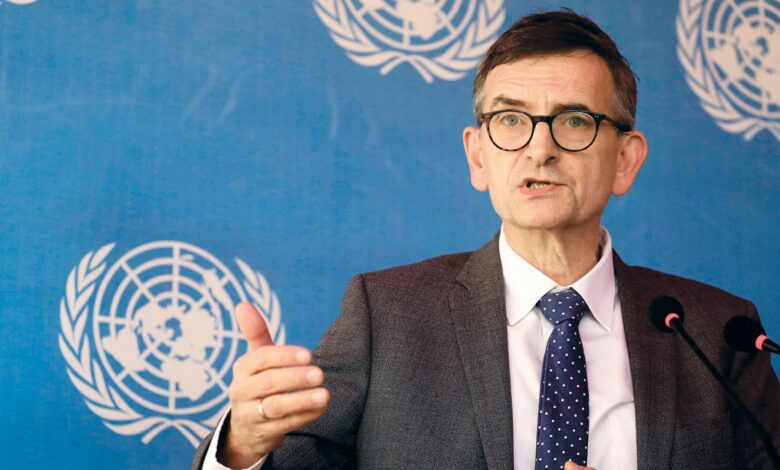
United Nations Special Representative of the Secretary-General in Sudan Volker Perthes has called on all Sudanese parties to show more commitment and political will as he also urged all major forces, political parties and grassroots movements, including the Resistance Committees, to open communication channels with one another and to think through their ideas and proposals.
Mr. Perthes said in an article he published today titled “Sudan and the prospects of seeing light at the end of the tunnel” that the comprehensive participation in the political process is something that the Sudanese political forces can achieve by ensuring the widest possible consultations with the actors and stakeholders close to them, assuring that the United Nations, its partners in the Trilateral Mechanism and the international community remain committed to Sudan, saying If the Sudanese walk the walk to bridge these gaps, we will be at their side.
He pointed that the United Nations’ primary goal since the 25th. of October 2021, has been to help facilitate an agreement on a civilian-led transitional arrangement based on an agreed constitutional framework to work towards achieving the goals of the December 2018 revolution that the Sudanese expressed in their slogan: Freedom, Peace and Justice.
He went on to say that General Abdelfattah al-Burhan’s announcement on 4 July, later confirmed by General Mohamed Hamdan Dagalo, positively indicated that the military was prepared to accept the leadership of a civilian-led government to oversee a democratic transition.
This presented a challenge for the civilian forces which we have encouraged them to accept, he added.
The United Nations Special Representative of the Secretary-General in Sudan said that “there are now several political initiatives that propose solutions. We have mentioned more than once that full Sudanese ownership of the political process is the cornerstone for its success. And we, in the United Nations and the Trilateral Mechanism, will continue to provide unlimited support to all Sudanese effort that aim at overcoming the deadlock and finding a way out of the crisis. To this end, we will continue to provide technical assistance and provide a space where divergent views by different parties can be bridged when needed. However, we cannot be more eager to reach an understanding than the Sudanese themselves.”
He noted that it is good that relevant Sudanese stakeholders have begun to meet and talk to one another in a more inclusive manner, making progress towards bridging major dividing lines
Perthes added that when he visited Darfur in July, he publicly reiterated that UNITAMS and the UN family are eager to do more to support the implementation of the Juba peace agreement and help to build sustainable peace in the areas that have come out of violent conflict, noting that certain steps have to be made before they can offer their own technical assistance or mobilize international support. “For example, we would be happy to support a Land Commission or a Disarmament, Demobilization and Re-integration (DDR) commission in Darfur. But we cannot establish such institutions – this is a sovereign issue for the Sudanese to agree upon and to decide,” he added.
He noted that other issues will have to be addressed in the context of any new political agreement that includes, among others, the establishment of commissions (for elections, transitional justice, anti-corruption, etc.), implementation of the Juba Peace Agreement, completion and consolidation of the peace process and planning a constitutional process, or a comprehensive national dialogue to deal with structural issues left unresolved for too long – such as the distribution of wealth and the relationship between center and the margins.
In order to achieve all this, the country needs an effective and acceptable civilian government, the United Nations Special Representative of the Secretary-General in Sudan said.
He said that there is also a central issue that we should not lose sight of, which is the issue of achieving justice and transitional justice, noting that this is absolutely necessary in order to settle the foundations of stability in Sudan.
“Here, I remind the Sudanese of their rich history of carrying out transitional justice in ways that ensure accountability and allow healing and reconciliation on the community and national levels,” he added.
Perthes stressed that it is ultimately up to the Sudanese people to embrace, rather than be set back by, their differences, and to exert every effort to urgently agree on a Sudanese-owned solution that meets their shared aspirations.
“The United Nations stands ready and eager to support the Sudanese parties in achieving this objective,” he concluded.


